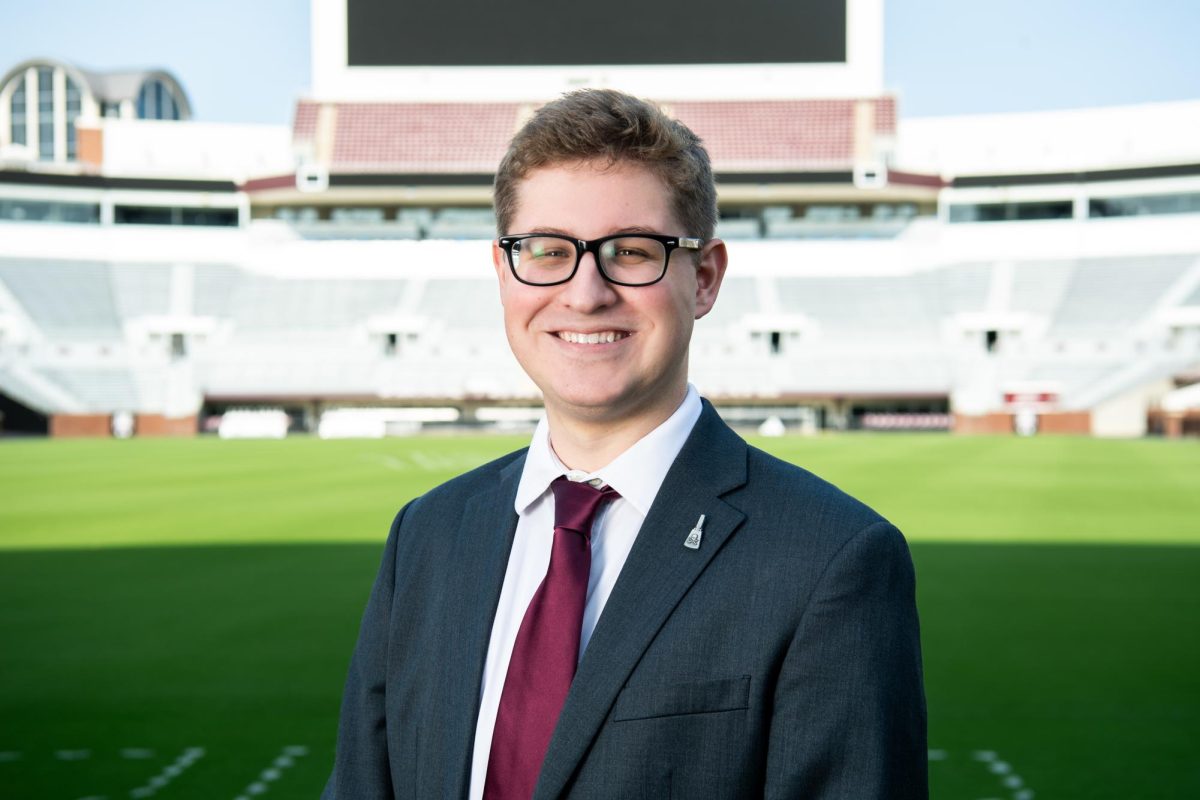Since Mississippi State University implemented the Office of Sustainability in 2016, MSU is more environmentally friendly and sustainable.
MSU Sustainability Coordinator Christine Lashley said she was always passionate about sustainability, particularly recycling. From December 2015 through December 2017, MSU recycled an average of 30 tons each month. While these numbers are a good start, Lashley said she hopes to see recycling continue to improve on campus.
Originally from Michigan, Lashley said the recycling culture in the south is very different than other parts of the country, and many students on campus are first-generation recyclers. Through educating the student body, Lashley said they are trying to build a culture on campus where recycling is second nature.
“We have already put into our culture that you are not just throwing trash on the ground,” Lashley said. “You are actually searching for a can to put it in. Now, we’re working on teaching people to think about what kind of material is in their hand, and to make the decision to put it in the proper bin.”
The donation-based MSU Green Fund for campus sustainability was founded in 2012. However, it was not until 2016 when MSU took the initiative to hire a full-time sustainability coordinator. Prior to hiring Lashley, Jeremiah Dumas was in charge of both parking and transit services and managing sustainability. In 2012, Dumas officially became the director of parking and transit services, and no longer worked with sustainability.
For four years there was not a sustainability staff on campus, and the university made very little progress in becoming a more environmentally friendly and sustainable campus.
President of Students for a Sustainable Campus Rachel Carlton said she believes the campus is trying to make an effort but has a long way to go. Carlton, a resident of Jackson, said she notices people unintentionally contaminate trash, ruining entire recycling bins. One major goal of the SSC is to educate students on how to properly recycle.
“Recycling in Mississippi is just not up to par. The Mississippi Recycling Coalition said 60 percent of Mississippians have access to drop-off or curbside recycling. Only 60 percent. The national average is around 96 percent,” said Carlton, a senior chemical engineering major.
The SSC helped implement other initiatives on campus through the Green Fund, such as the water bottle filling stations and the bike fixing stations. When the University of Mississippi went styrofoam-free, this inspired the SSC to get MSU to make the same change. Their campaign was a large factor in the switch to compostable to-go containers in cafeterias.
Lashley said MSU has used the compostable containers in the cafeteria since last year, but the containers are not composted because the school does not have an industrial composter where they can be sent.
While MSU does not have access to some resources for sustainability, Lashley said other colleges across the nation do. One example is the University of Florida, which has a zero-waste football stadium because their cups, plates, straws and cutlery are all compostable. UFL also has access to an industrial composter to send their compostable trash.
One reason it is harder for MSU to make substantial changes is because of a lack of funding. It was not until last year President Mark Keenum allocated $20,000 annually to the Student Association for the purpose of sustainability.
Last year, the SA held a proposal competition to search for ideas on how to use the funding. This resulted in building the MSU Community Garden and a compost bin located near the garden.
Construction of the MSU Community Garden began last year during the spring semester and is a three-fold project. The first part of the garden was built and designed by students. The second part of the garden will mirror the first half, and the last addition will be an orchard.
Graduate student in landscape architecture Eloisa De Leon coordinates service days where volunteers can come and work in the garden. De Leon, a native of Guatemala and a resident of Pontotoc County, said last semester there was a successful turnout of students from many different areas and departments on campus. Overall, De Leon has found students interested and receptive to the garden.
Students are currently designing the second part of the garden, and construction should start at the end of February. Despite these advancements, De Leon said due to limited funding, the MSU Community Garden does not compare to other universities in regards to bio management. Lashley said she believes Mississippi’s lack of resources makes it harder for MSU and surrounding areas to make the changes necessary to become more sustainable.
One positive movement toward sustainability in the area is the initiation Keep Starkville Beautiful last June.
Assistant City Planner for the City of Starkville Emily Corban serves as city staff, which supports Keep Starkville Beautiful. Corban said despite having a rough start, the program has received a budget from the city and is ready to implement their ideas. While they do not work with MSU at the moment, Lashley and Corban said they look forward to the possibility of future collaborations.
With these developments in the community and on campus, Lashley said she is hopeful all these small efforts will snowball into something greater. Lashley said she believes students are ready for change, but it cannot happen overnight.
“I definitely have seen a difference on campus just in my two years,” Lashley said. “Small changes are happening, but I am hopeful. University of Florida has had an Office of Sustainability for 10 years, so it just takes time.”
Sustainability on the MSU campus
0
More to Discover























































































